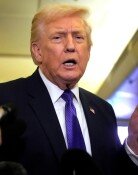’It’s Kishida’s turn to respond to the past history,’ says Presidential Office
’It’s Kishida’s turn to respond to the past history,’ says Presidential Office
Posted May. 06, 2023 07:56,
Updated May. 06, 2023 07:56
On Friday, two days prior to the summit meeting between President Yoon Suk Yeol and Japanese Prime Minister Fumio Kishida, both governments commenced coordinating their final stances. While the government maintains an official position that it is meaningful that the leaders of Korea and Japan resumed shuttle diplomacy, it is widely known that numerous delicate matters, including security cooperation, disposal of radioactively contaminated water, and historical issues such as forced labor during the Japanese colonial period, have left the parties grappling to reach an amicable agreement. They are continuing to work towards producing the most favorable outcome possible at the upcoming meeting.
The upcoming Korea-Japan summit on Sunday has generated significant interest in whether Prime Minister Kishida will explicitly offer an apology and express remorse for the victims of forced labor during Japan's colonial rule. During President Yoon's visit to Japan in March, Kishida did not mention the "painful apology and reflection on the colonial rule" as stipulated in the 1998 Kim Dae-jung-Obuchi Joint Declaration. Instead, the Japanese prime minister’s stance was limited to inheriting the position of previous cabinets as a whole.
“Japan must take responsibility for issuing an apology independently," a senior government official said in a phone conversation with the Dong-A Ilbo. “Now it is Japan's turn to respond. Japan is aware of what it should do." While the two governments are not working together to coordinate an apology before the summit, the official's statement implies that the pressure is mounting on Japan to take sincere measures and respond to the situation at hand, even if a direct apology is not explicitly demanded.
Another key issue is the message that the leaders will convey with regards to security cooperation. In light of the increasing nuclear and missile threats from North Korea, the leaders of South Korea and Japan will also convene for a South Korea-U.S.-Japan summit following the primary summit during the G7 summit scheduled in Hiroshima, Japan from May 19 to 21. Reports suggest that the two leaders will prioritize enhancing cooperation in detection functions, such as sharing missile warning information, as a response to North Korean nuclear and missile threats. Moreover, discussions are underway regarding the possibility of establishing a new security consultative body during the subsequent Korea-U.S.-Japan summit. "This meeting holds particular significance in the realm of security and serves as a stepping stone to strengthening cooperation between the two nations in preparation for the trilateral summit,” a government official said.
Jin-Woo Shin niceshin@donga.com · Joo-Young Jeon aimhigh@donga.com



![17년 망명 끝에, 부모 원수 내쫓고 집권[지금, 이 사람]](https://dimg.donga.com/c/138/175/90/1/wps/NEWS/IMAGE/2026/02/18/133376197.3.jpg)



